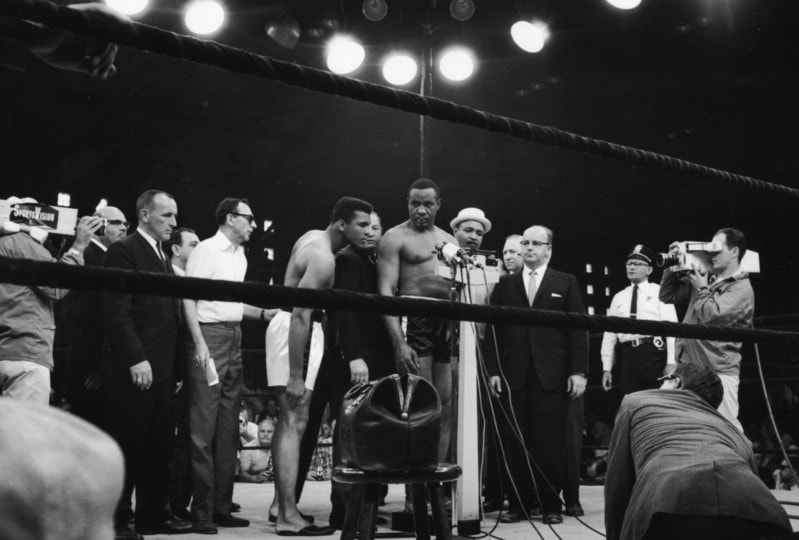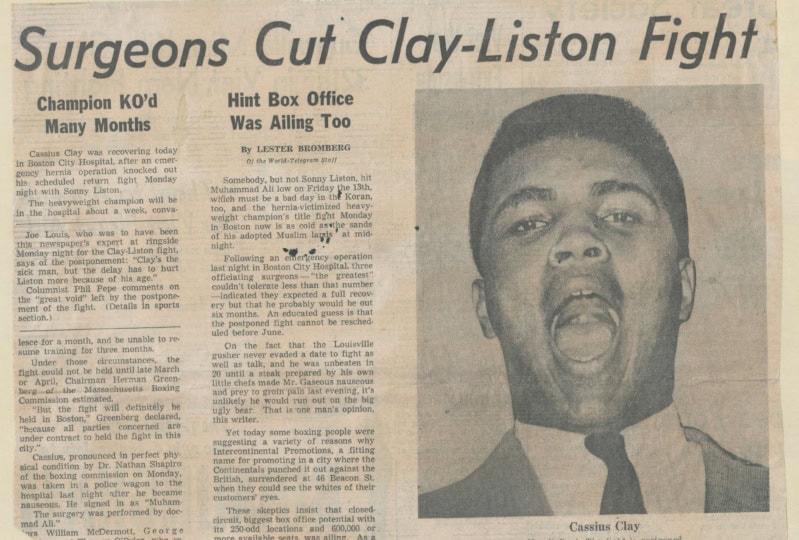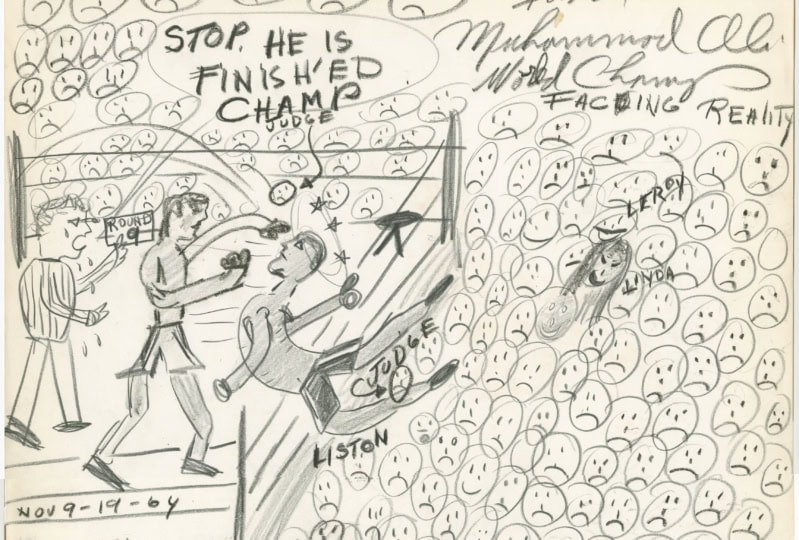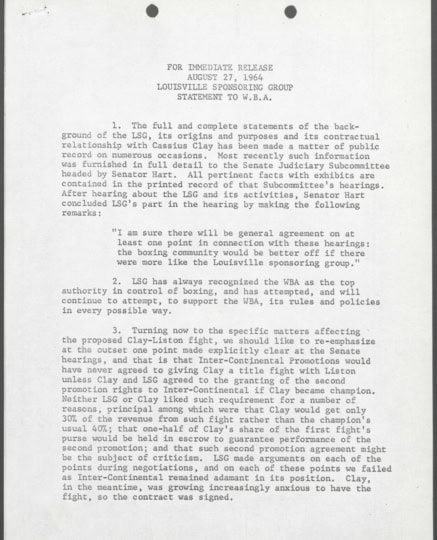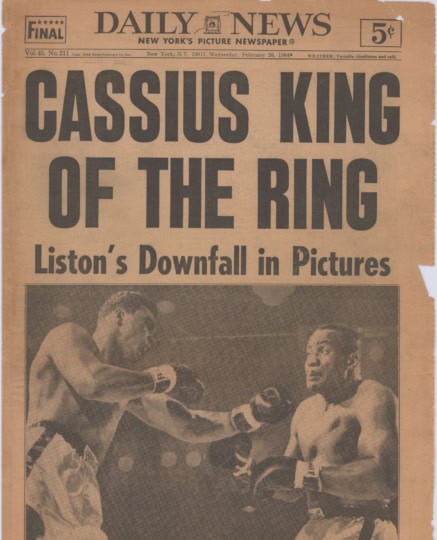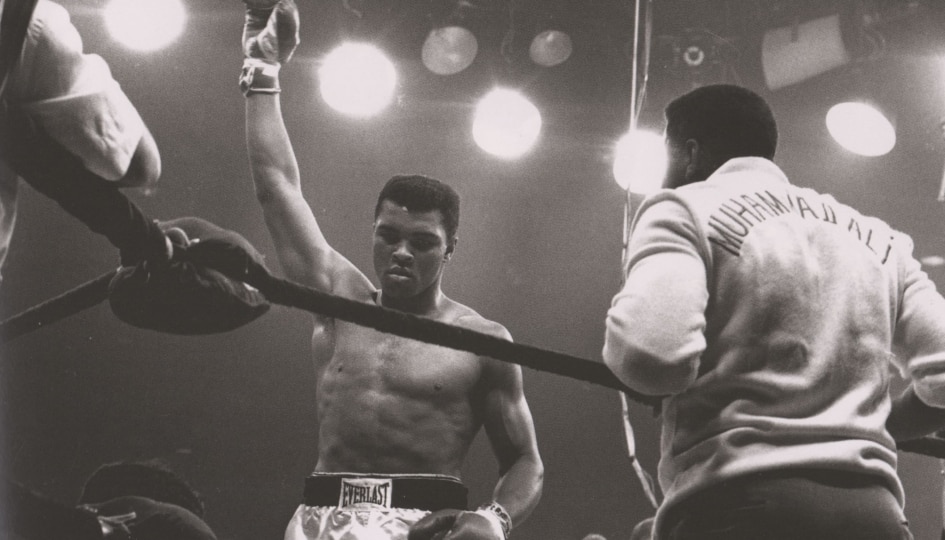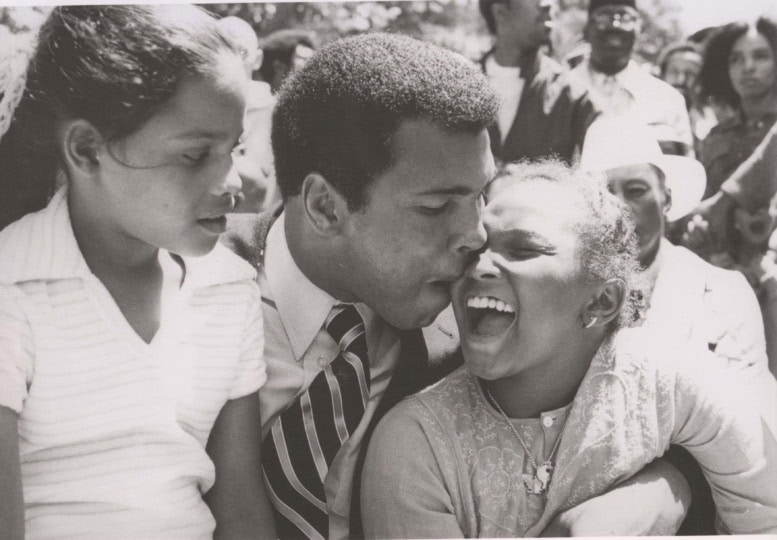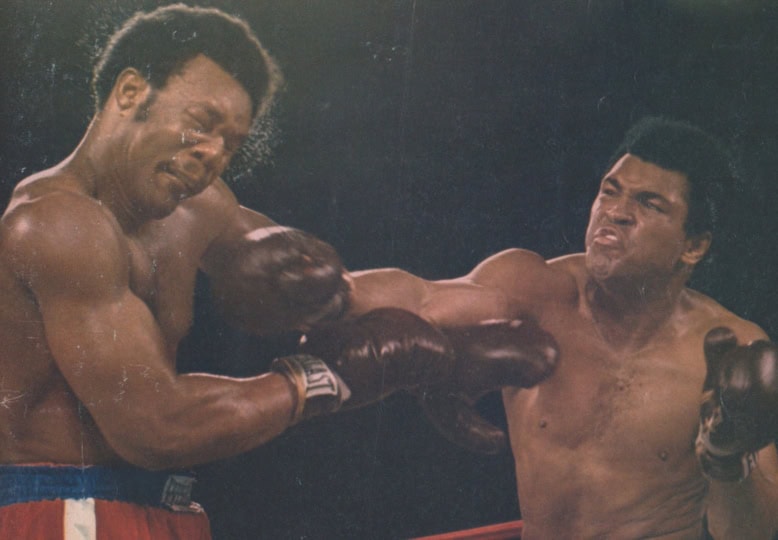Ali V. Liston II:
60 Years Later
60 Years Later
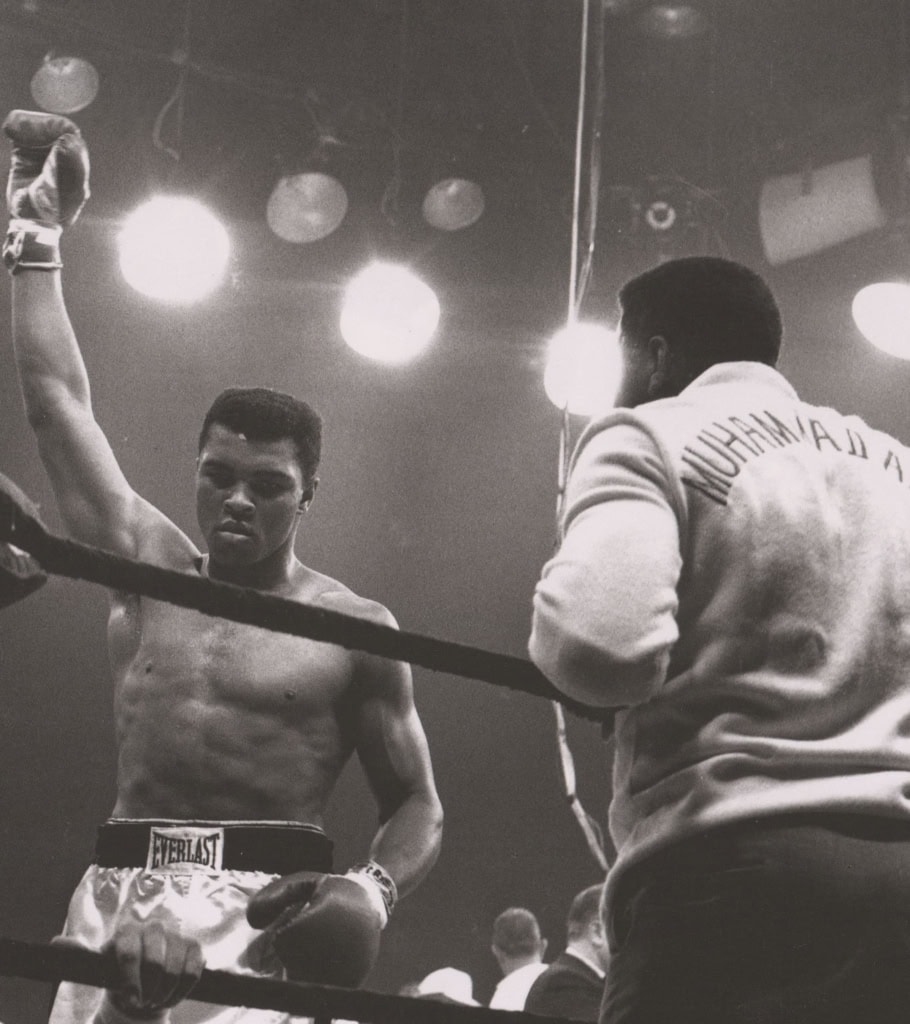
"Only fools believe I beat (Liston) by accident last time."
A Controversial Encore
May 25, 1965
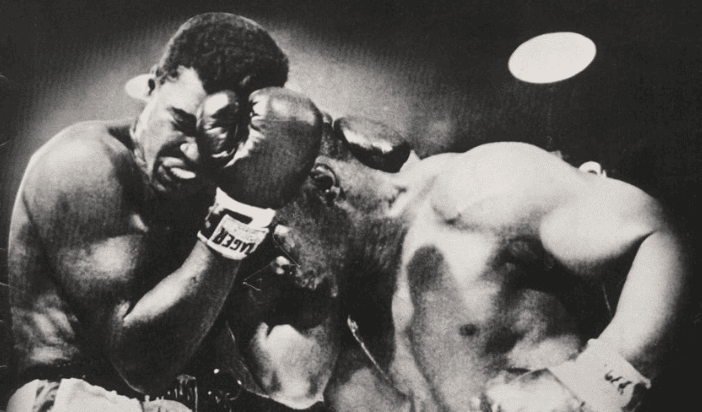
The New King and the Controversies Ahead
In February 25, 1964, Muhammad Ali (then Cassius Clay, Jr.) shook up the world and became the new Heavyweight Champion after defeating Sonny Liston by technical knockout in the seventh round of their matchup. Ali made a name for himself in the boxing world, and would soon be re-introduced as Muhammad Ali.
Many had already suspected that Muhammad had converted to Islam, and only one day after the fight, it was publicly confirmed. Ali went by Cassius X until he received his new name on March 6, Muhammad Ali, which was given to him by The Honorable Elijah Muhammad.
The conversion, name change, and theories from media outlets and boxing outlets that the fight was fixed immediately laid a shadow on Ali’s accomplishments, which began talks of a rematch.
Watch Fight Highlights
Ali and Liston's first bout for the heavyweight title took place at Miami Beach, Florida.
Watch Fight Highlights
Ali and Liston's first bout for the heavyweight title took place at Miami Beach, Florida.
Check out our Digital Feature Exhibit on Ali v. Liston for more information on how Ali “Shook Up the World.”
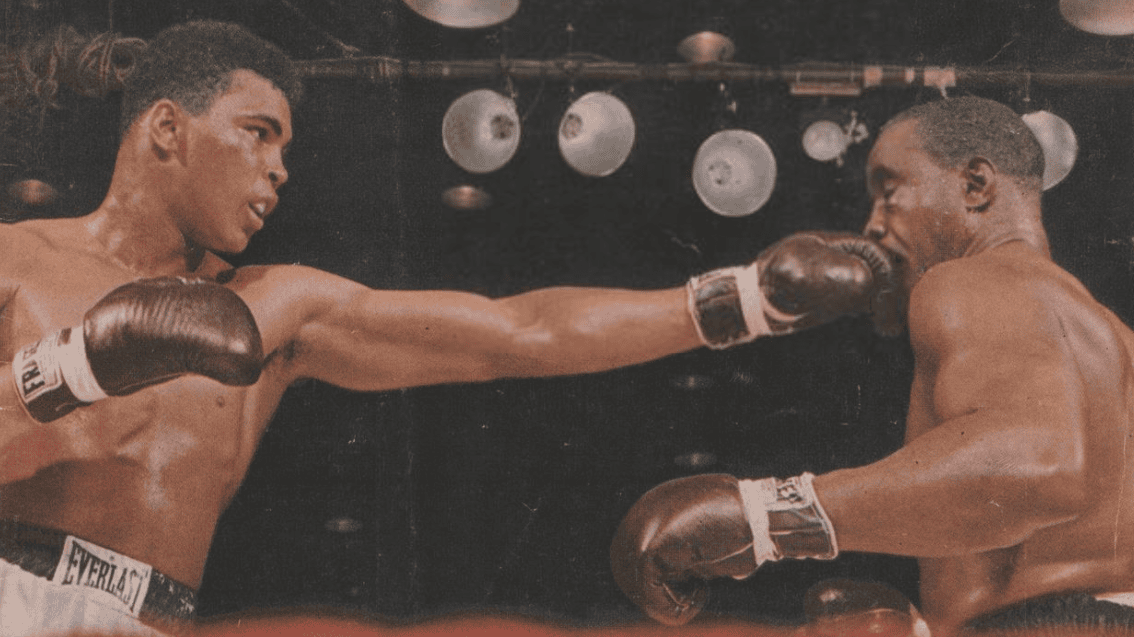
Rematch v. the World Boxing Association
Due to speculation, World Boxing Association began their examination into Ali and Liston’s first fight with more scrutiny. The organization found a clause within the agreement of the first fight, stating if Ali won the title Heavyweight Champion, then the rights to promote Ali’s next fight would be handled by Inter-Continental Promotions.
This was a controversial agreement as Sonny Liston owned stake in Inter-Continental Promotions. So when a formal agreement for Ali and Liston’s rematch was signed on July 17, 1964, World Boxing Association was quick to publicly condemn the fight.
The group stated that they would strip Ali’s title should he follow through with the fight.
The World Boxing Association eventually allowed a Heavyweight Championship title defense rematch only if the winner faced a top-rated W.B.A. contender within six months of their victory. To ensure this was fulfilled, the W.B.A. held $50,000 from the purse of the winner.
Watch Training Video
Ali's cornerman Drew "Bundini" Brown speaks with reporter in rare archival footage of training ahead of Ali's second fight with Liston.
Watch Training Video
Ali's cornerman Drew "Bundini" Brown speaks with reporter in rare archival footage of training ahead of Ali's second fight with Liston.
Training Begins
With the fight originally scheduled for November 16, 1964 at Boston Garden arena, Ali headed to Boston and began training at nearby Santo’s Gym. Several of Ali’s usual training camp members also came along, including Ali’s brother Rahaman, his cornerman Drew “Bundini” Brown, and sparmate Cody Jones.
Crowds assembled to watch Ali spar and listen to what he had to say. One young fan was told by Ali, “I’m the real promoter of this fight. I’m making boxing something new.”
Liston trained at the White Cliffs Hotel, being observed by his trainers Willie Reddish and Al Lacy. Onlookers who attended Liston’s training session said that Liston was boxing with a vengeance.
Lacy said, “(Liston’s) got so much viciousness inside of him, he’s just got to let it out.”
The rematch once again had Ali as the underdog with 13 to 5 odds.
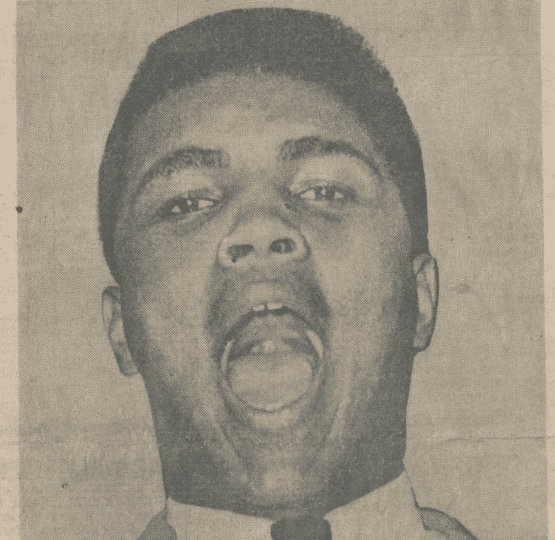
An Unexpected Delay
Days before the fight, Ali's affliction with illness pushed back the anticipated fight.
Operation and (Temporarily) Out of Commission
On the night of November 13, Ali and his entourage were winding down from a day of roadwork at Ali’s hotel. When Ali rushed to the bathroom and became ill, he was rushed to the hospital. To do this without informing the public Ali was sick, he was escorted through a back entrance of the hotel with a towel over his head straight to the ambulance.
Ali was examined at the Boston City Hospital emergency room, where it was determined that Ali was suffering from an incarcerated inguinal hernia. He was rushed to operation immediately, but a surgeon said the Champ would not be ready to train again for at least three months.
The fight was postponed, leading the Chairman of the Massachusetts Boxing Commission, Herman Greenberg, to inform local fans “…the fight will definitely be held in Boston because all parties concerned are under contract to hold the fight in this city.”
The initial postponement resulted in the loss of money for investors and, particularly, for Ali’s management team, the Louisville Sponsoring Group. Their losses reached roughly $60,000 in total.
Check out our Digital Exhibit on this anniversary, for additional treasures from the second Ali v. Liston matchup.
Reschedule and Relocation
Ali was cleared to return to training at Boston City Hospital on February 8, 1965, with all signs pointing towards a rematch in Boston in May.
Several high-profile incidents happening not long after Ali was cleared for training that caused the fight to move to Lewiston, Maine.
On February 21, Malcolm X walked onto a stage to speak at the Audubon Ballroom in Manhattan, New York, and was shot and killed. On the same day several hours later, a mysterious fire broke out in Ali’s apartment in Chicago, Illinois.
Watch Interview
Ali speaks with reporter stating the fight will go on even if moved out of Boston and that he plans to take down Sonny "The Bear" Liston.
Watch Interview
Ali speaks with reporter stating the fight will go on even if moved out of Boston and that he plans to take down Sonny "The Bear" Liston.
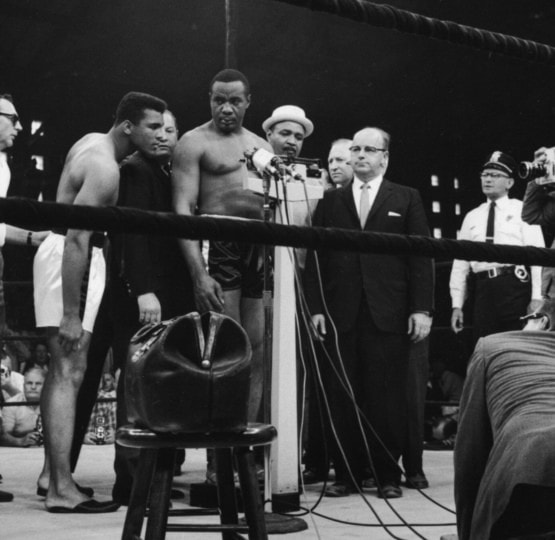
Fight Night Arrives
After months of delays and controversies, Ali finally meets Liston again in the ring on May 25, 1965.
A Night of Oddities
The Central Maine Youth Center was a far cry from the grandeur of major fight venues. Just 2,434 spectators filled its 4,900 seats—the lowest attendance ever for a heavyweight title fight. The crowd, however, included notable figures like Sports Illustrated writer Tex Maule, critic Larry Merchant, and photographer George Silk. The referee was former heavyweight champion Joe Walcott.
Ali entered the ring for the weigh-in and viewers booed, but when Liston entered the ring, cheers erupted from the small crowd. Ali remained calm and collected, and mostly silent, while he was weighed and his vitals were taken. His heart rate was perfectly normal and he even managed to get a smile from Liston when he squared up with the former champion with bare fists.
Robert Goulet, the famed Canadian-American actor and singer, was brought in to sing the National Anthem and ended up forgetting the words – a precursor to more strange occurrences that would happen that night.
As the bell rung and the fight begun, the two boxers collided in the middle of the ring in a clumsy exchange before Ali broke free and began dancing around the perimeter of the ring, all the while keeping his hands low. Liston leaned in every few moments to throw a jab or a hook, but few made an impact as Ali bobbed, weaved, and dodged each one.
At two minutes and 12 seconds in to the match, it was all over.
Watch Fight
The fight ended in the first round in only two minutes and 12 seconds.
Watch Fight
The fight ended in the first round in only two minutes and 12 seconds.
The Phantom Punch
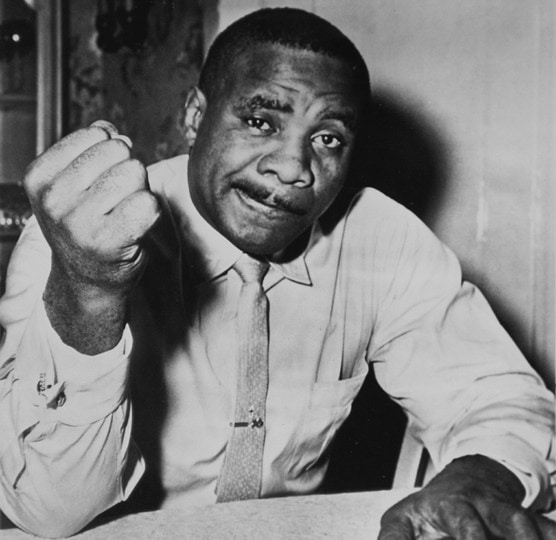
What Happened to Liston?
While Ali's career continued, Liston never tried to reclaim the Heavyweight title.
A Battered and Bruised Legacy
Though his life ended in uncertainty, Liston remains a significant and tragic figure in boxing history.

